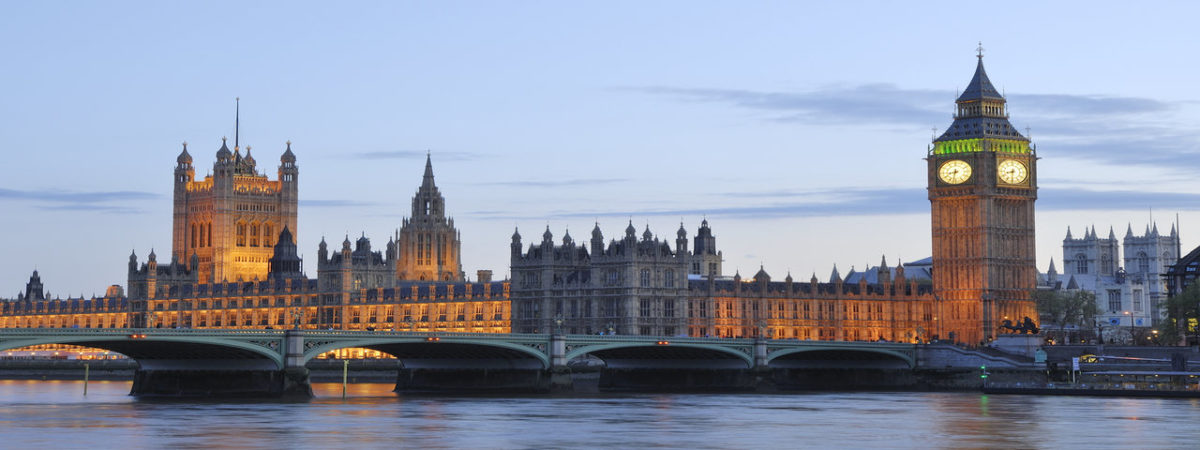Does the BBC have an anti-capitalist bias? A critique of “Promises, Promises: A History of Debt”
SUGGESTED



Both a former Director General of the BBC (Mark Thornton), and a former BBC Business Editor (Jeff Randall) are on record for stating that the BBC has, or had, that general bias: in the past, at least, and in their personal experience.
For the record, I, personally, assess some of the main BBC political reporters and commentators – such as John Humphrys, Nick Robinson, Evan Davies, and the World at One BBC Radio 4 Team – as scrupulously fair in their treatment of party-political figures, and in their adjudication of the ‘bunfights’ between them, conducted on their programmes.
But there remain, to my mind, some very substantial questions about the editorial selection of topics, approaches and questions addressed by the BBC in the broad areas of economics and business, and as regards, in particular, the selection of its treatment of capitalism and its nature, workings, and institutions.
A major case in point is afforded by the recent (2 -13 March 2015) 10-part series on BBC Radio 4 (in a prestigious slot, just after the World at One News), entitled “Promises, Promises: A History of Debt”. The author and narrator of this extensive series, Professor Graeber, is not, I note, an economist – either by education or profession – but instead, an anthropologist. He is also a self-declared anarchist and activist, apparently a member of the Global Justice Movement, co-founder of Occupy Wall Street, and the author of a most interesting academic essay entitled “Rebel Without a God: A Meditation on the Anti-Authoritarian Elements of Buffy the Vampire Slayer” (N.B: I am not making any of this up).
Throughout his BBCR4 Series, Prof Graeber is at great concern to denounce, virtually in toto, the entire economic apparatus of both debt and interest; it is all ‘gangster-like’, imposed upon ‘the 99%’, by the very rich, warlords, landlords etc. Prof Graeber is also against any attempt to reduce the national debt (‘economically disastrous’), or even to reduce the rate at which it is increasing (i.e. the budget deficit), except by his advocated policy of renunciation.
According to Prof Graeber, debt is just a matter of ‘promises’, which can (according to him) be redrawn or renegotiated without any untoward consequence. Indeed, he claims that ‘society’ (presumably, also, the economy?) is just a simple matter of ‘promises’, which can, therefore be torn up and renegotiated in some sort-of collective/‘democratic’ sorting-out of all extant financial debts and other promises. Indeed, democracy, he tells us (without qualification) “requires an equal say in the making of [all] promises”.
Of course, there has to be a ‘slight’ concern about how such a ‘Graeberesque’ economy, polity, and society might actually work in practice, or indeed, what even the outline of such a vague socio-economic idea might mean, in very general terms. Prof Graeber has insisted – in a separate interview for France 24 – that he does not think it is his job to explain the details of how his proposed new system might work. He claims that, in this new system of his imagination, the tasks of working out the ‘technical details’ – such as prices and who-does-what economic arrangements – could be handed over to (one-tenth of) the quants/nerds previously involved in constructing securitised derivative financial products, and who would be otherwise be unemployed, under his new schema.
There is a considerable variety of problems that would arise from any attempt to implement Graeberian ideas; but one needs emphasis, above all: the Arrow Impossibility Theorem, first published in 1951, by the economist (and later Nobel Laureate) K. J. Arrow. He showed, mathematically, that it would be impossible to construct an objective ‘social welfare function’ that is agreed upon by everyone in society through a democratic choice process. In short, the idea of utilising ‘the quants’ left unemployed by a Graeberian revolution to solve the problem once capitalism is torn up is utter fantasy.
Graeber’s system is just another some-sort-of-central-computation-can-replace-capitalism-but-I-can’t-tell-you-what-it-is idea, served with some anarchist waffle.
As I gauge it (although they are very coy about this), the BBC has a much larger economics team than any university department in the UK, including the LSE’s. Nor is it at all likely that they are all unaware of the fundamental matters raised above. Yet apparently, they are quite willing to approve a major series on ‘economics’ by Prof Graeber – a ‘triple A’ (anthropologist, activist, anarchist) – without bothering to ask some real economists to even comment on, or contribute to, this license fee-funded series.
Robert Peston, the current BBC Economics Editor, has derided the notion that the BBC has an inbuilt left-wing stance as “bollocks”. In view of the above, however, I honestly do worry that our supposedly impartial state-financed broadcaster may have some institutional predisposition towards trendy left-wing, anti-capitalist analysis. Of course, one cannot extrapolate from one single series to the BBC’s overall stance. Not every programme has to be balanced in itself; balance can also be restored by allowing a variety of ‘biases’ side by side, i.e. contributions that are biased in different directions. But I find it, to say the least, very difficult to imagine that the BBC’s editorial team would have been equally relaxed about a similar series with an explicit pro-market agenda.
1 thought on “Does the BBC have an anti-capitalist bias? A critique of “Promises, Promises: A History of Debt””
Comments are closed.




“The IEA brings a free-market perspective to the political and economic arena through numerous interviews and appearances on TV and radio”
Pretty sure the iea has appeared on the bbc a few times? The BBC news channel airs regular business slots which present a very controlled and unquestioning view of the activities of corporation, a daily reinforcement of the status quo. One series questioning this hardly shows bias from the BBC.
The BBC is bound to look left wing to the extreme right, as it appears right wing to the left.